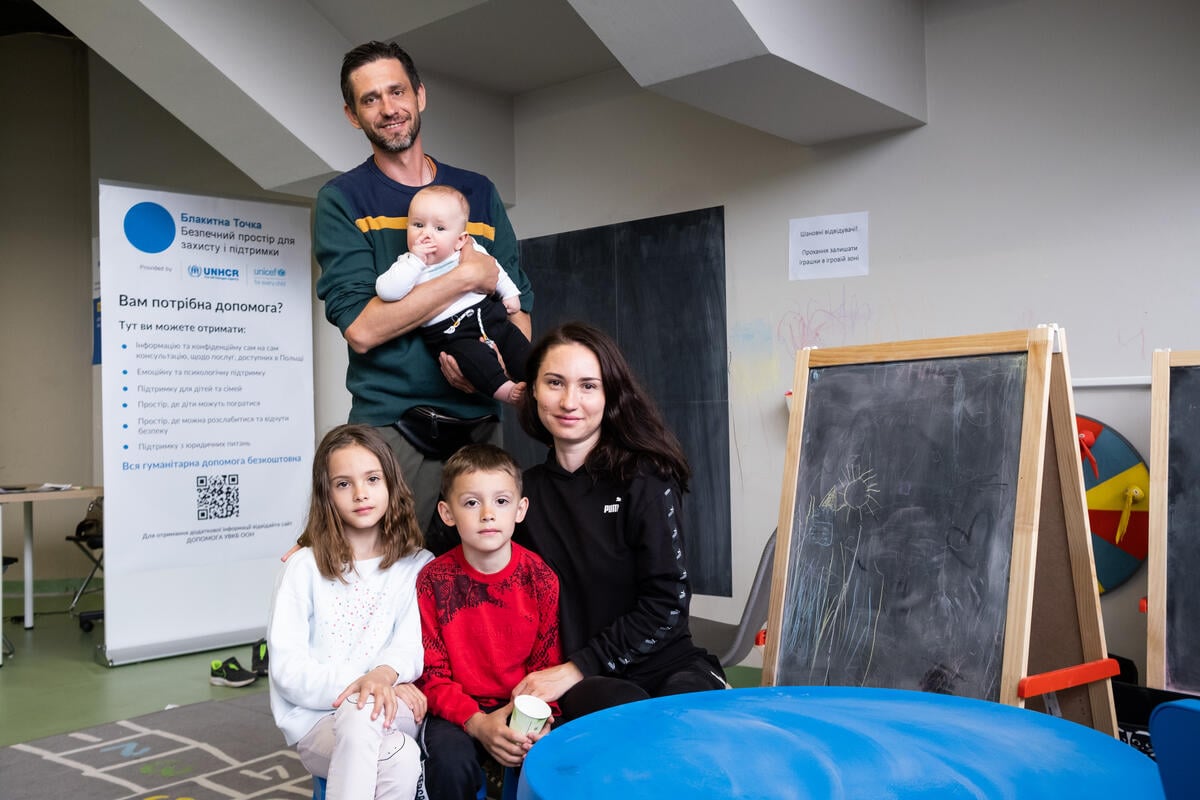Iraqi refugee children head back to packed public schools in Jordan
Iraqi refugee children head back to packed public schools in Jordan

AMMAN, Jordan, August 25 (UNHCR) - Eleven-year-old Laila* was a picture of happiness at the beginning of last week when she joined hundreds of thousands of other children around Jordan and returned to school after the two-month summer break.
"I am thankful that I have been given the opportunity to go back to school. I have made many friends and am always encouraged," said the youngster, one of tens of thousands of children who have enrolled in Jordan's public education system since King Abdullah II opened it up a year ago to all Iraqi students, regardless of their legal status.
With the encouragement of the UN refugee agency and its partners, many Iraqi children have been leaving costly private institutions and joining public schools - like the one in Amman's Marka district that Laila attends. UNHCR believes it is essential that all refugees continue to receive an education, which was not possible for the neediest before the king's decree.
But the influx of new Iraqi students, combined with the king's efforts to increase enrolment by Jordanian children amid soaring fuel and food costs, is putting a significant strain on the public education system. A reported 31,000 Jordanian children have transferred from private to public schools for this academic year.
"We are critically aware that the pressure on the public [education] system is immense," said Imran Riza, UNHCR's representative to Jordan. The Jordanian government has begun renting additional space and hiring more teachers, but many schools are reportedly no longer accepting applications from Iraqis or Jordanians.
Some schools have waiting lists and some will resort to organizing so-called double-shifting - holding academic sessions for one class in the morning and another in the afternoon.
But despite the difficulties and logistical problems, the UN refugee agency is determined to ensure that young Iraqi refugees do not miss out on classes. Riza, who welcomed Jordan's decision to continue allowing all Iraqi children to enrol in public school this year, said that "for UNHCR, education remains a priority as well as a challenge."
In July and August, UNHCR and its partners conducted a campaign to increase school enrolment this academic year and to encourage Iraqi refugees who had exhausted their savings to transfer their children from private to public schools.
Despite Jordan's generosity in opening up its public schools last year and so ensuring that many Iraqi children could continue or restart their education, UNHCR is concerned that large numbers of school-age refugees are still missing out on classes.
Although there is only a small annual contribution to enrol in public schools, many of the increasing number of cash-strapped families - such as Laila's - are opting to send all, or some, of their children out to work. "My [older] brother has been out of school for three years because he has been forced to work to provide for our family," Laila revealed.
UNHCR is looking at other ways of boosting numbers, including working with the government on expanding the capacity of public schools. It is also examining the introduction of evening classes that Iraqi refugee children can attend after work. Other initiatives under consideration include non-diploma courses in areas such as computer skills, language and art, where the object would be simply to equip people with marketable skills.
"One of the most crucial challenges that we face is that we do not lose the literacy and futures of a generation of Iraqi children due to displacement," said UNHCR's Riza.
* Name changed for protection reasons
By Ziad Ayad in Amman, Jordan









